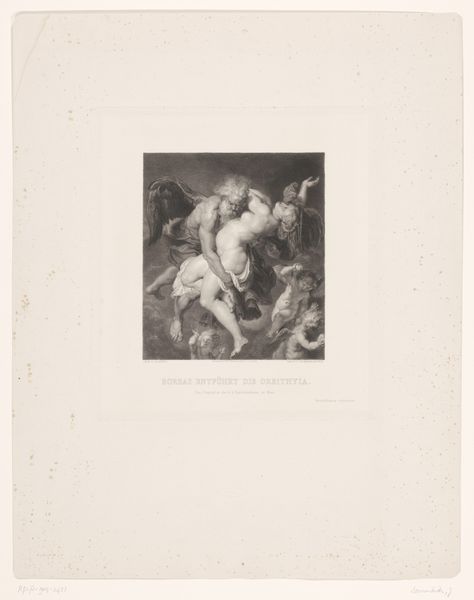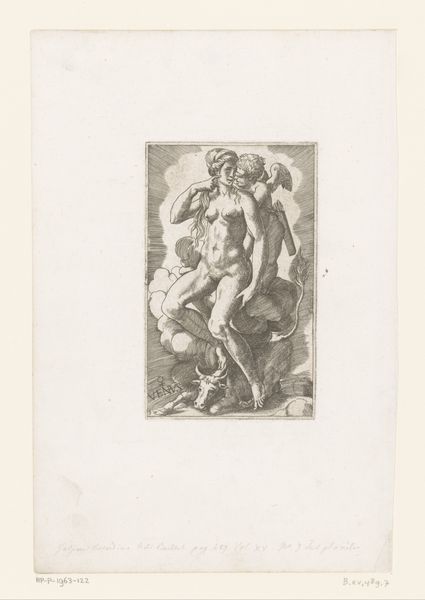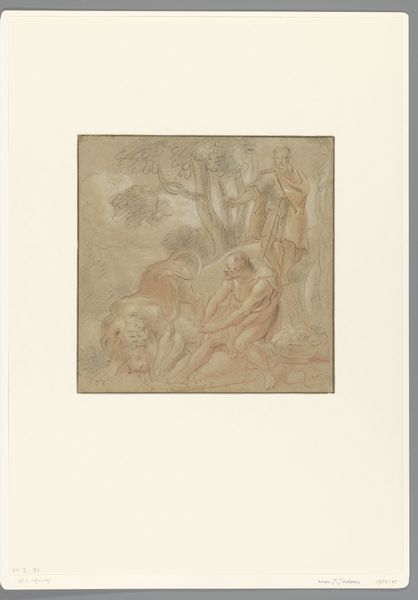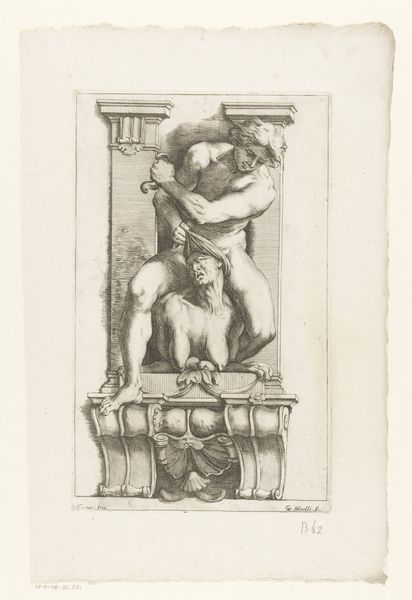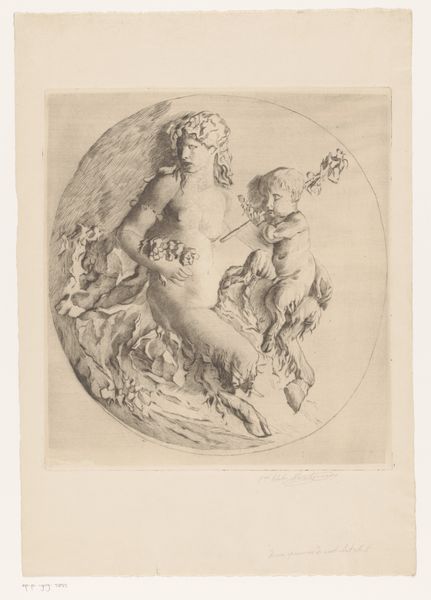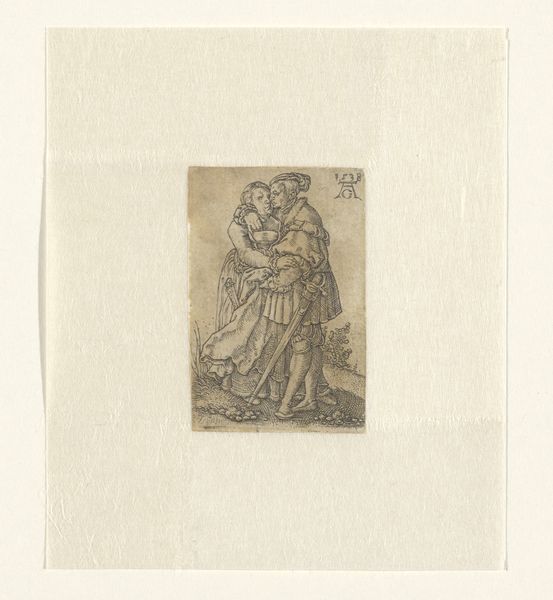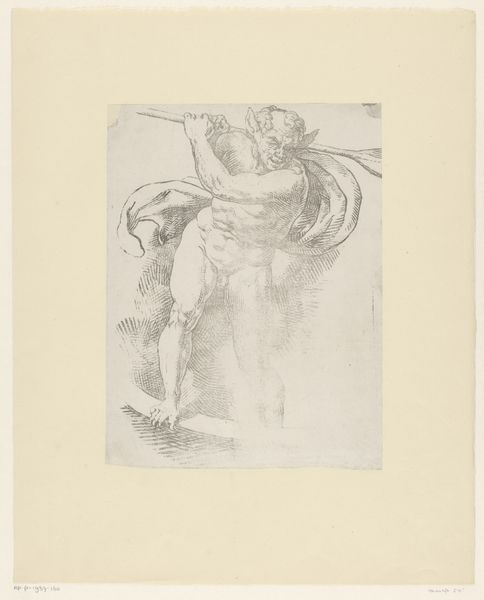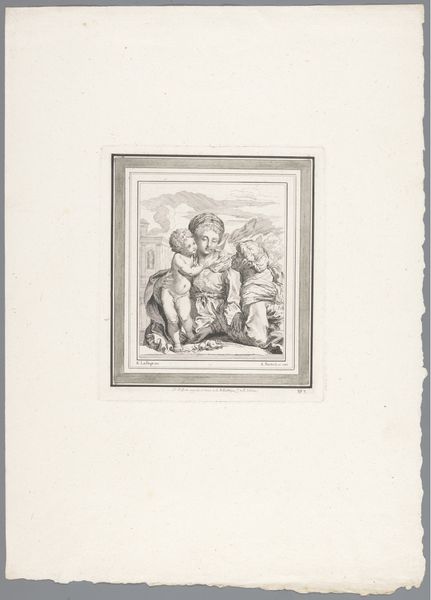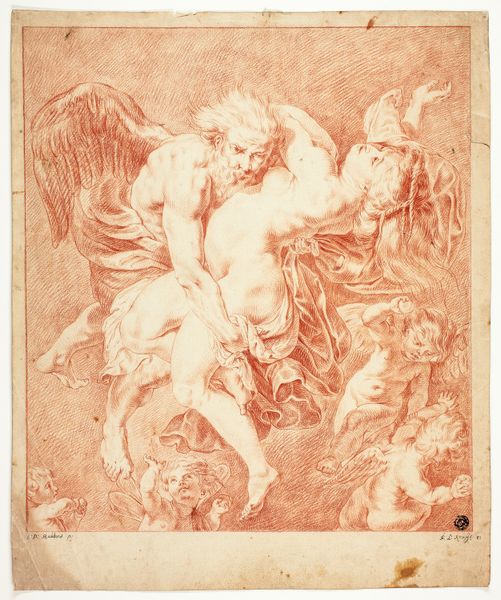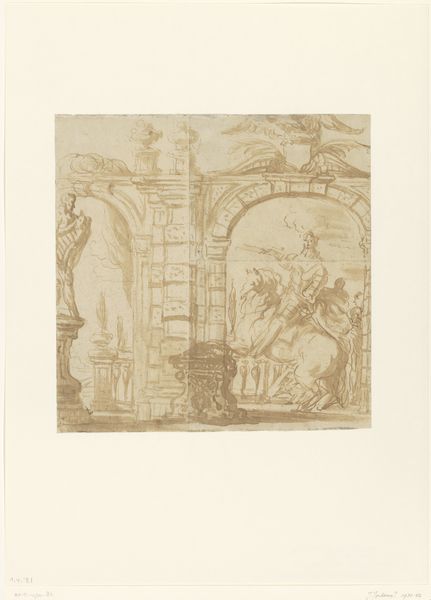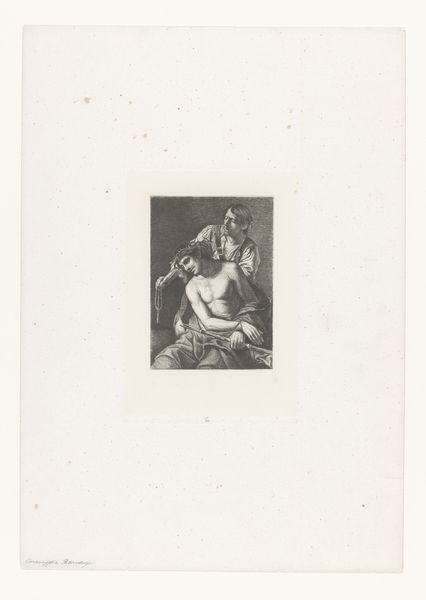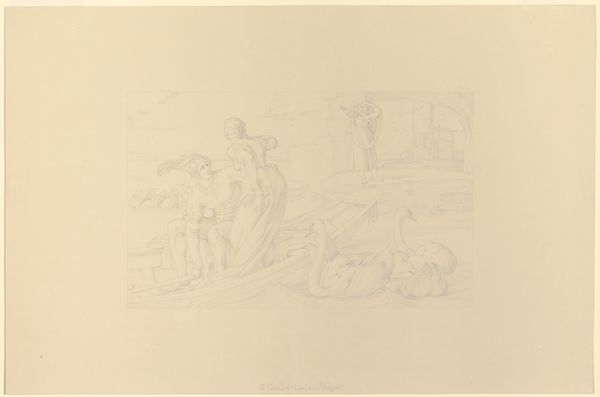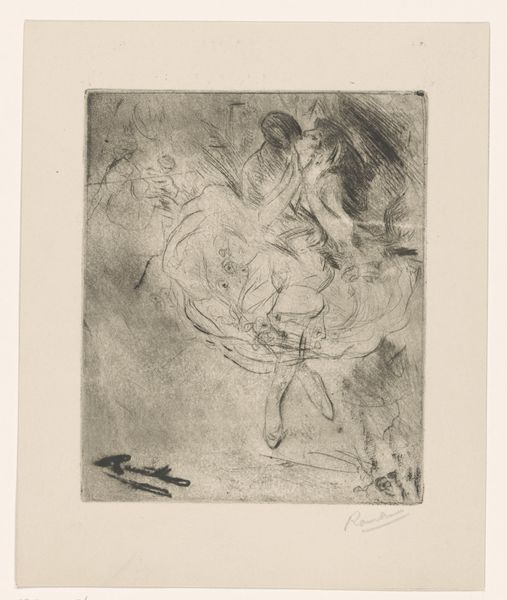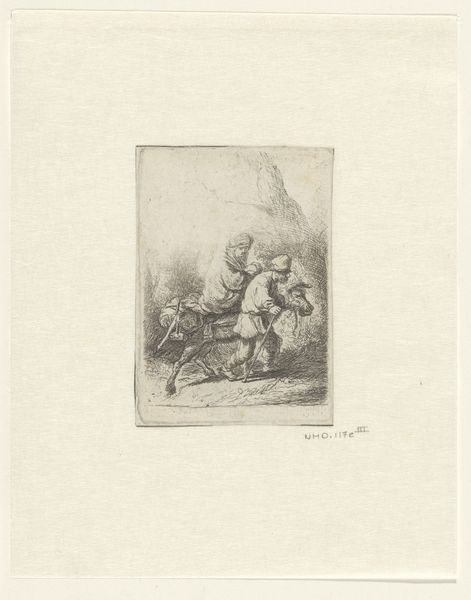
drawing, dry-media
#
portrait
#
drawing
#
allegory
#
baroque
#
figuration
#
11_renaissance
#
dry-media
#
history-painting
Dimensions: height 237 mm, width 247 mm
Copyright: Rijks Museum: Open Domain
Curator: Looking at this drawing, I’m immediately struck by the vulnerable softness achieved in the rendering of the figures despite the use of sanguine. It evokes a tenderness that contrasts the classical subject. Editor: Indeed. What we have here is “Study for the Triumph of Divine Love with Amor,” attributed to Peter Paul Rubens and estimated to have been created sometime between 1587 and 1640. It's currently held in the Rijksmuseum. It is a detailed drawing using dry media on paper. Curator: Right, the triumphal motif is strong. The symbolism of Amor atop the lion immediately brings forth images of the cyclical relationships of control and desire throughout history. I imagine Rubens thought carefully about what this coupling would project. Editor: Absolutely. Lions are often associated with strength, kingship, and even divinity in numerous cultures. In this image, we also see an association to the early Christian church because Mark the Evangelist is traditionally associated with a winged lion. Here it is led by Amor, suggesting divine influence tempering earthly power. Curator: That interpretation opens up new ways to explore how notions of power intertwine with theological arguments. This almost tames that power, in a way… But perhaps more powerfully suggests a particular control over certain communities. Editor: Consider the emotional resonance these symbols held in the 17th century. It served not just as visual communication but was understood within existing socio-cultural beliefs that are sometimes at odds with the messages in the drawing. This image, thus, also works as a tool to examine past values. Curator: This work serves to prompt considerations around faith, power, and, to a degree, what liberation might look like. These layered dialogues of past, present, and the spaces in between are essential to navigating any cultural heritage collection. Editor: Seeing this sanguine study, my focus lingers on these powerful and malleable symbols, as I reflect upon their evolving meanings.
Comments
No comments
Be the first to comment and join the conversation on the ultimate creative platform.
